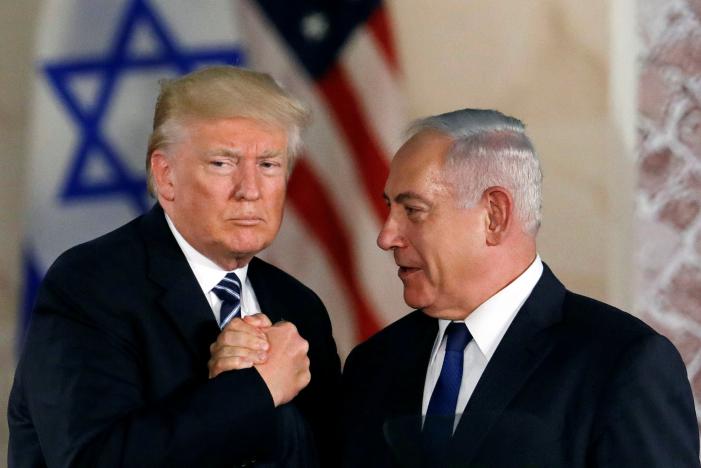Toxic Trump doesn't do true alliances, as Jews and one day evangelicals will find out
If you want a friend in Washington, said Harry S Truman, get a dog, and it's hard to imagine a time when this is truer than now, as an increasingly wild, flailing Donald Trump seeks to create chaos, smoke and mirrors to distract from the growing threats engulfing his presidency.
As a result, things are not always as they seem, and beneficiaries of Trump's favour should be careful what they wish for.
While seemingly all evangelical leaders under the sun are 'ecstatic' at Trump's destabilising decision to recognise Jerusalem as the capital of Israel, conversely not all Jewish groups are, with some in the community warning of damaging and potentially violent consequences.

J Street, a liberal advocacy group that favours a two-state solution to the Israeli-Palestinian conflict, described the move as 'an unhelpful step with no tangible benefits, only serious risks'.
The group added: 'Contradicting decades of bipartisan presidential policy, it does nothing to advance, and could seriously undermine, the administration's stated commitment to resolving the Israeli-Palestinian conflict while potentially threatening Israel's security and alienating Arab regional partners.
'With this announcement, the question of whether or not the waiver gets signed is a moot point. The act of recognising Israeli sovereignty in Jerusalem prior to a negotiated peace agreement will have the same damaging impact as an actual move of the embassy.'
The independent – Jewish – senator Bernie Sanders added a warning: 'There's a reason why all past US administrations have avoided making this move, and why leaders from all over the world, including a group of former Israeli ambassadors, have warned Trump against doing it: it would dramatically undermine the prospects for an Israeli-Palestinian peace agreement, and severely, perhaps irreparably, damage the United States' ability to broker that peace.
'What the US should be doing now is bringing adversaries in the Middle East together to seek common solutions, not exacerbating tensions in this highly volatile region.'
In Israel, as security is being stepped up in the Old City of Jerusalem and protests take place in Gaza and across the Arab world at the decision, there must be enhanced fears among Jews there. For contrary to conventional wisdom, it is in Israel's own security interests to make a lasting agreement with the Palestinians that now seems more elusive than ever.
Meanwhile, back in the US, Jews have already been threatened with a spike in antisemitic attacks under Trump's administration, one which, in February, Steven Goldstein, the executive director of the respected Anne Frank Center for Mutual Respect, said is 'infected' by the 'cancer' of antisemitism.
'Make no mistake,' he said. 'The anti-Semitism coming out of this administration is the worst we have ever seen from any administration.'
And that was before Sean Spicer, Trump's former press secretary, was forced to apologise in April after comparing Hitler favourably with Syria's Bashar al-Assad, telling reporters at the White House: 'We didn't use chemical weapons in World War Two. You had someone as despicable as Hitler who didn't even sink to using chemical weapons.'
Like all toxic people, Trump doesn't do real, lasting friendships.
Yes, Christian Zionist evangelicals are happier than ever with Trump, and with a third of evangelicals apparently backing Trump whatever he does, it's hard to see this bizarre and unlikely bond being broken.
But who's to say that one day, they won't be thrown overboard, too?











